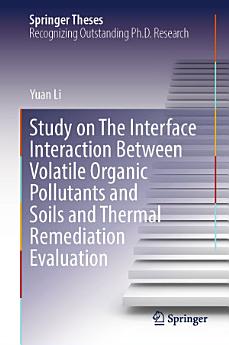Study on The Interface Interaction Between Volatile Organic Pollutants and Soils and Thermal Remediation Evaluation
About this ebook
About the author
Dr. Yuan Li studied Geoenvironmental Engineering at the Institute of Rock and Soil Mechanics, Chinese Academy of Sciences (CAS) and Cardiff University, where he spent five years (2018–2023) conducting cross-disciplinary research on bio-electro-chemico-thermo-hydro-mechanical behaviours of contaminated soils and geo-wastes. He is currently a distinguished postdoctoral fellow at the Hong Kong Polytechnic University, Hong Kong, developing functional nanomaterials derived from geo-wastes with eco-benefits and applying them to geopolymer-stabilised infrastructures. He will serve as a research associate at the University of Cambridge from April 2025 to September 2025, and as a Marie Curie Fellow at Imperial College London from October 2025, where he will continue these studies. His research interests focus on (1) analysis of soil-pollutant interactions and interactions between soil particles and functional nanomaterials; (2) novel thermal and thermochemical methods to address soil contamination; (3) microstructure analysis and assessment of geopolymers, thermally treated wastes, and waste-based nanomaterials with environmental benefits for sustainable infrastructures; and (4) sustainability assessment based on life cycle analysis and carbon budget for waste-based cementitious materials. He has received various research funds and awards, including the Horizon Europe Marie Skłodowska-Curie Actions Fellowship, the Distinguished Postdoctoral Fellowship, and the Special Prize of Presidential Scholarship from CAS.







